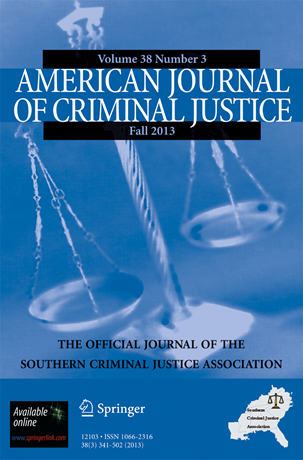Examining Parent Criminal History as a Predictor of Recidivism From a Life-course Perspective: Testing for Age-differing Salience in Effects
Abstract
Biosocial research has examined intergenerational transmission of criminality and genetic explanations underpinning the link between parent and offspring criminality. Less research has examined parent criminal history as a predictor of offspring recidivism risk and the limited research on this topic has yielded mixed findings. Further, there is a dearth of research that has examined potential age-graded differences in salience of this relationship. A positive interaction between age and parent criminal history for predicting recidivism may then be indicative of evidence of intergenerational transmission helping to explain divergence between adolescence-limited and chronic offenders. The Pathways to Desistance data were analyzed. Mixed effects modeling was used to test for direct and interactive effects for predicting re-offending frequency. Results indicated that having a parent with a history of being arrested/jailed was associated with increased re-offending frequency. A significant positive interaction between age and parent criminal history was also observed. Findings indicated that identification of justice-involved youth with parents who similarly have a criminal history are at-risk for recidivism. Prioritizing youth who are exiting adolescence treatment may help to reduce recidivism in particular.


 求助内容:
求助内容: 应助结果提醒方式:
应助结果提醒方式:


